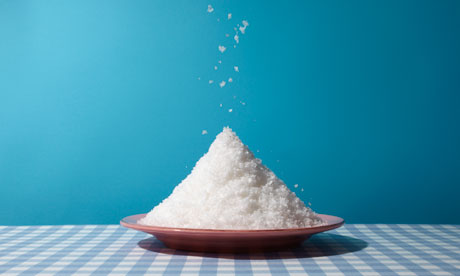
My GP recently told me I have low blood pressure (around 90 for the top reading) and seemed to think this was fine. Does this mean I can feel smug, eat more salt and not worry so much as people with high blood pressure?
A top reading of 90 – your systolic pressure – is a fairly low but still reasonably average pressure. Either way, we Brits don't take low blood pressure seriously unless it is producing symptoms such as faints and dizzy spells, or has been caused by some previous damage to the heart. I presume that you are fit and have no relevant symptoms. If that's the case, then you are right – you have less chance of a stroke or heart attack than if you had a higher blood pressure. I'm told that continental doctors, particularly in France, do tend to take low blood pressure more seriously, blaming it for fatigue, lassitude, sleepiness and even depression. Problem is that well-trained athletes usually have low resting blood pressures, too, and they don't display these symptoms. Be happy with your blood pressure and your GP's decision that it's fine.
Six months ago I had shingles in my scalp, hairline and one eye. I've been left with severe itching in my scalp and around one eye, which can develop into headaches. I'm told that I could take a mild antidepressant, but I am not keen to go down that route. Is there anything else I can do?
Post-shingles irritation of the nerve endings involved can last for months, sometimes even years, so it is important to try to treat it. Amitriptyline, the antidepressant you were offered, is also used specifically to ease nerve pain, so in your case it wasn't for depression but as a direct treatment for the skin irritation. It does help. You could also try capsaicin cream, which is known to dull the sensitivity of the affected nerve endings. Talk to your doctor, as he or she may well advise you use it on your scalp. The area around the eye, however, is more awkward, because capsaicin is made from peppers and so would be an irritant to the eye itself. Tell your doctor about your persistent irritation: he or she should be able to offer a choice of treatments to suit you.
• Got a medical query for Dr Tom? Email doctordoctor@theguardian.com

